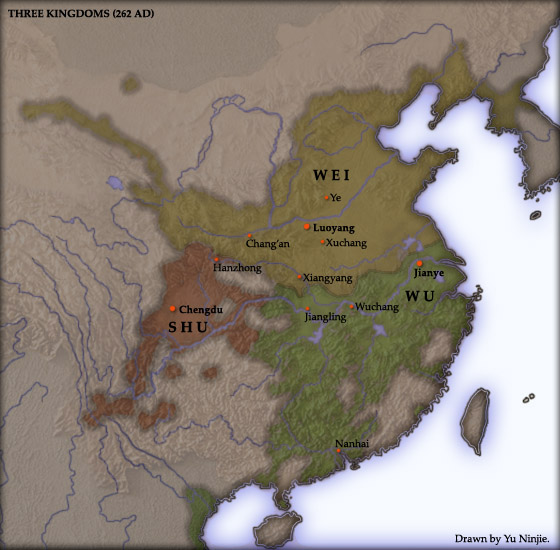263 on:
[Wikipedia]
[Google]
[Amazon]
 __NOTOC__
Year 263 ( CCLXIII) was a
__NOTOC__
Year 263 ( CCLXIII) was a
 __NOTOC__
Year 263 ( CCLXIII) was a
__NOTOC__
Year 263 ( CCLXIII) was a common year starting on Thursday
A common year starting on Thursday is any non-leap year (i.e. a year with 365 days) that begins on Thursday, 1 January, and ends on Thursday, 31 December. Its dominical letter hence is D. The most recent year of such kind was 2015 and the next one ...
(link will display the full calendar) of the Julian calendar. At the time, it was known as the Year of the Consulship of Albinus and Dexter (or, less frequently, year 1016 ''Ab urbe condita
''Ab urbe condita'' ( 'from the founding of the City'), or ''anno urbis conditae'' (; 'in the year since the city's founding'), abbreviated as AUC or AVC, expresses a date in years since 753 BC, the traditional founding of Rome. It is an exp ...
''). The denomination 263 for this year has been used since the early medieval period, when the Anno Domini calendar era became the prevalent method in Europe for naming years.
Events
By place
Roman Empire
* King Odenathus of Palmyra declares himself ruler of the area west of theRiver Euphrates
The Euphrates () is the longest and one of the most historically important rivers of Western Asia. Together with the Tigris, it is one of the two defining rivers of Mesopotamia ( ''the land between the rivers''). Originating in Turkey, the Euph ...
and is declared ''Dux Orientalis'' by the Roman emperor Gallienus.
Asia
*Conquest of Shu by Wei
The Conquest of Shu by Wei was a military campaign launched by the dynastic state of Cao Wei against its rival Shu Han in late 263 during the Three Kingdoms period of China. The campaign culminated in the fall of Shu Han and the tripartite equi ...
: The Chinese state of Cao Wei conquers Shu Han
Han (; 221–263), known in historiography as Shu Han ( ) or Ji Han ( "Junior Han"), or often shortened to Shu (; pinyin: ''shŭ'' <
Sima Zhao
Sima Zhao () (211 – 6 September 265), courtesy name Zishang, was a Chinese military general, politician, and regent of the state of Cao Wei during the Three Kingdoms period of China.
Sima Zhao capably maintained control of Wei, which had been ...
, regent of the Cao Wei state, receives and accepts the nine bestowments, state chancellorship, and the title ''Duke of Jin'' from Cao Huan
Cao Huan () (245/246–302/303), courtesy name Jingming, was the fifth and last emperor of the state of Cao Wei during the Three Kingdoms period. On 4 February 266, he abdicated the throne in favour of Sima Yan (later Emperor Wu of the Jin dyn ...
.
By topic
Art and Science
* Chinese mathematician Liu Hui writes a commentary on '' The Nine Chapters on the Mathematical Art'', describing what will later be calledGaussian elimination
In mathematics, Gaussian elimination, also known as row reduction, is an algorithm for solving systems of linear equations. It consists of a sequence of operations performed on the corresponding matrix of coefficients. This method can also be used ...
, computing pi, etc.
Births
Deaths
* Gao Rou (or Wenhui), Chinese politician (b. 174) * Lady Li (or Lishi), Chinese noblewoman * Liu Chen, Chinese prince of theShu Han
Han (; 221–263), known in historiography as Shu Han ( ) or Ji Han ( "Junior Han"), or often shortened to Shu (; pinyin: ''shŭ'' <
Ruan Ji, Chinese poet and musician (b.
210
Year 210 ( CCX) was a common year starting on Monday (link will display the full calendar) of the Julian calendar. At the time, it was known as the Year of the Consulship of Faustinus and Rufinus (or, less frequently, year 963 ''Ab urbe condita ...
)
* Zhuge Zhan, Chinese general and politician (b. 227
Year 227 ( CCXXVII) was a common year starting on Monday (link will display the full calendar) of the Julian calendar. At the time, it was known as the Year of the Consulship of Senecio and Fulvius (or, less frequently, year 980 ''Ab urbe condi ...
)
References
{{DEFAULTSORT:263